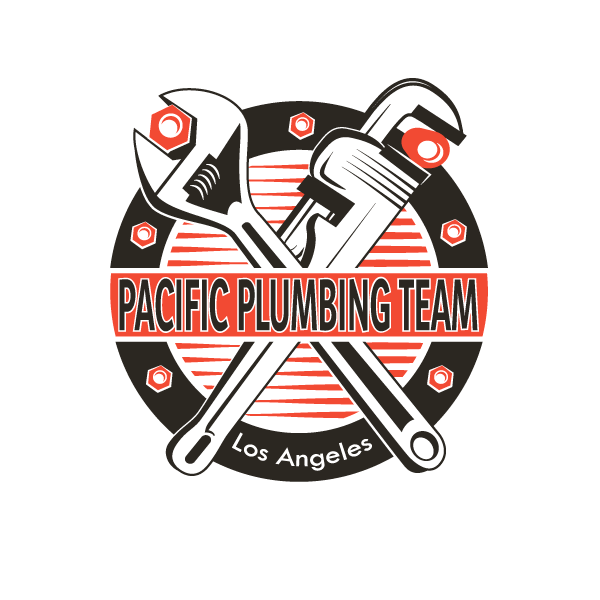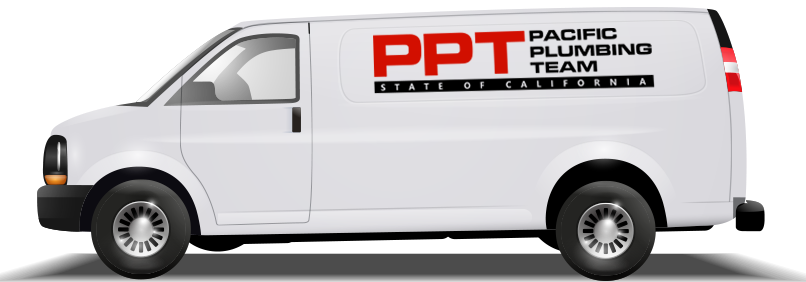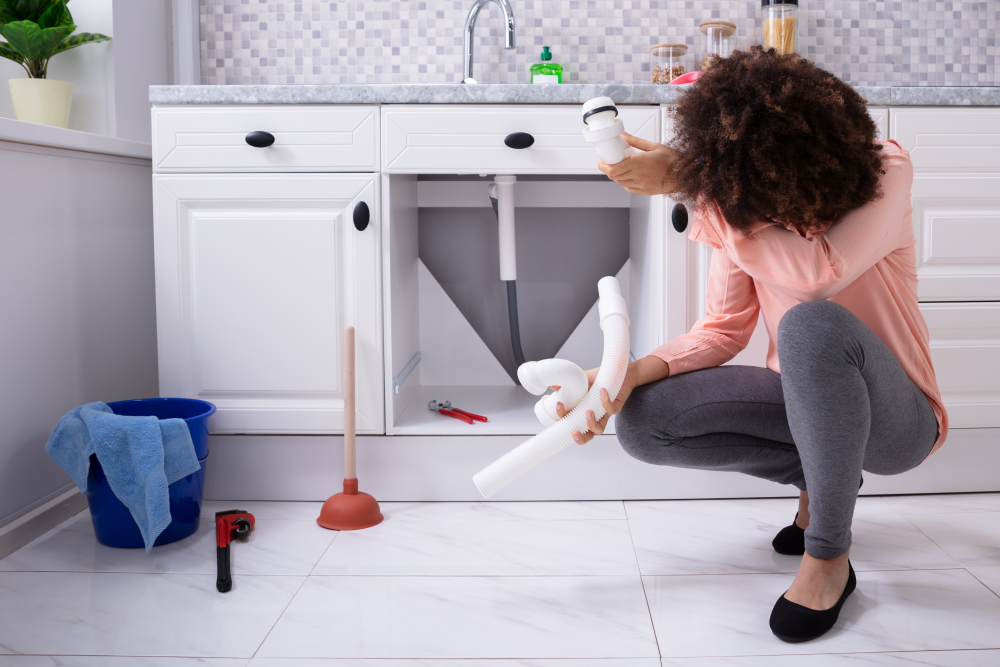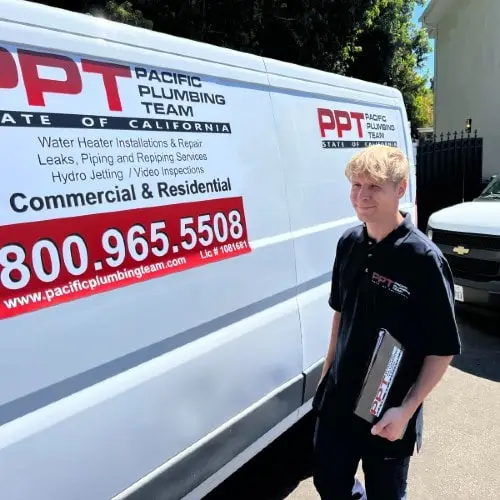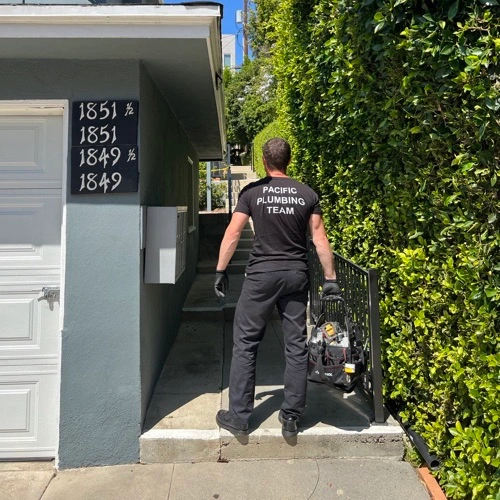Leaks cause homeowners significant damages plus a hefty water bill. That’s why detecting a leak in the house early is crucial. Professional plumbing experts play a big role in leak detection, especially for ones that are not visible.
There is a difference between a regular plumber and a leak detection specialist. The latter use specialized tools and techniques to find hidden leaks within and outside your homes.
Since it is not uncommon to have leaks around, we’ll talk about how to find leaks in the house and repair them without causing damage to our property.
Signs You Have a Water Leak in Your Home

Leaks are not always visible to the naked eye. Often, they are hidden between walls, underground even. So how do we know we have a leakage going on? Here are signs you should look out for:
Increase in Water Bills
It is almost possible to confirm a leak when your water bill suddenly has an increase from the usual average. If you’re using water just as usual without any changes in your consumption, but your bill says otherwise, then it’s time to call the plumber.
It can be hard to tell if the increase is not that of a significant amount. But it is something you should not overlook. The most common cause of increased bills is leaking toilets – the quick solution is to change the flapper inside the tank or the flush ball.
Visible Foundation Damage
If you notice damage in your foundation, there is probably an underlying water leak. One of the most daunting issues a homeowner can face – foundation leaks can threaten the structural integrity of your home. The hydrostatic pressure a leak can create may push the foundation and cause cracks. Thus, compromising your safety.
Wet Flooring or Pooling Water
Water seeping through your floor can be caused by a leak or a pipe burst. This visible sign should be addressed immediately as this can damage your flooring, walls, and even the appliances and furniture that might get wet.
Damp or Moldy Walls
Mold and mildew are the result of too much moisture in the air. If your walls start having a buildup of mold, then there is a possible leak behind it. Some molds release toxins that can be a health risk for you and your family.
Leaking Sounds
Water flows through your main water lines all the time. But you can’t hear it because your pipes are closed when you’re not using them. However, if that system develops a leak, you will start hearing running water sounds. Depending on the leak size, the sounds can be a gush or droplets of water.
Musty Odors
When you notice an unclean, possibly moldy smell inside your home, a leak comes to mind. This smell can be an earthy smell of rotten wood caused by mold and dampness. Most likely, somewhere with wooden flooring or walls has already been damaged by water.
Low Water Pressure
Water leakage can cause your water pressure to drop. No matter how big or small the leak is, there will always be a difference from the normal water pressure you have in your home.
Sagging Ceiling
Water damage can cause your ceiling to sag. Apart from sagging, other signs your ceiling has sustained a leak problem are stains or discoloration, peeling paint, and cracks or bubbles. Broken pipes in between levels must be repaired quickly to avoid further damage.
Causes of Water Leaks
Leaks in your water system can be a result of a variety of causes. This problem doesn’t only cause you damage and increase water bills, it also wastes water and encourages unwanted organic growth inside your home.
The main causes of leaks are the following:
- Corrosion – old galvanized pipes should be replaced especially when they turn out to be rusty. Corrosion can eat your pipe away and start a leaking problem.
- Clogged lines – clogged pipes can lead to overflowing of water, or worse, bursting lines. There can be many causes of clogging within your water lines, limescale included, especially in areas with hard water.
- Broken seals – when water appliances like your dishwashers are installed, a seal is placed on the water connector. As your appliances age, the seal breaks off or wears out, mainly causing a leak between the connections.
- Damaged pipe joints – pipe joints are the weakest point of a water line. It deteriorates over time and can cause leaks. Unfortunately, these joints aren’t always visible since they can be under the floor, behind walls, or placed underground.
- Excess water pressure – excessive or uneven water pressure can strain your pipes. Most faucets and pipes have a pressure limit and too much can cause bursting or leaking water.
- Tree roots – underground leaks can be caused by protruding tree roots within your water line. If you notice wet patches in your yard or a puddle and a sinkhole, you most likely have an outdoor leak.
- Loose connectors – hoses and pipes can become loose and may lead to leakage. Shifting motions usually cause this – like when your washing machine or dryer spins.
- Temperature change – extreme temperature changes can cause pipes to expand contract. This creates cracks within the pipes especially when the pipes freeze during winter.
Importance of Leak Detection
Homeowners like you must understand that early leak detection can save you and your family from risks and costs. While leaks can be inevitable in each home, locating and detecting leaks in the early stages can save you 3 important things:
- Time – undetected water damage can put you and your family at risk. When you are exposed to a home with an underlying water leak, it’s a matter of time until someone gets sick from the toxins from molds that form within.
- Money – the damages of water leaks to your home can be alarming especially when the leak sustained is in a hidden area that can take you long to notice. Your appliances can be ruined, the structural integrity of your walls and ceilings might be compromised, and your pipes will surely need replacements – all of which can cost you a few hundred to thousands of dollars.
- Effort – cleanup and repairs take a lot of effort from homeowners. Hiring professional cleaners can be expensive on top of the plumbing issues you must address. And honestly, taking care of the mess a water leak leaves can be draining.
Professional Methods to Detect Leaks
How does a plumber find a water leak underground? – If you have this question in mind, then reading through the blog will give you the answer.
Huge plumbing issues like water leak detection are better left to the experts. They have special plumbing leak detection equipment to detect the problem without causing any harm to your property. And because of the expertise they already have, locating the leak will be easier.
So, how do plumbers find leaks? The answer is the following methods and techniques.
Visual Inspection
Our licensed leak detection plumbers generally start with a visual inspection to see if there are any visible signs throughout your home. Their expert skills and intuition help them analyze the signs and symptoms of water leaks. This expertise allows them to locate, assess, and repair your water leaks quickly to prevent any further damage.
Water Pressure Testing
This method, also called isolation testing, allows plumbers to observe water pressure movement, usage, and loss within your water system. A water pressure gauge is attached to a fixture connection where the flow will be observed and tested.
Video Pipe Inspection
With the use of a specialized camera, our plumbers at Pacific Plumbing Team can detect inaccessible pipe leaks through a video pipe inspection. No demolition is required for this method.
This works by the camera attached to a scope rod that is manipulated and maneuvered around your water system. Once inserted into the pipe, our technician will observe the live video feed on the linked monitor to locate the water leak.
Audio Equipment
We use a series of audio equipment to listen to leaking sounds through drywalls, cabinets, and other obstructions. These tools include listening discs, ground microphones, and deck plates that are powerful enough to listen through concrete and brick walls.
Thermal Imaging Cameras
Heat scanners or thermography cameras can allow plumbers to detect leaks behind walls and through floorboards. This is an effective way to look at large areas quickly when the use of audio equipment is impractical.
Soil Probe
Also called pipe probes, allow plumbers to detect underground leaks in the sewer and main water lines.
Dye Testing
We use this method to detect water leak problems related to the toilet or pool systems. This is a non-invasive way to trace leak locations. A high-visibility dye is used to observe the flow of water.
Calling the Experts in Leak Detection and Repair
By now, you understand that locating and solving leak issues are not really for a DIY-er or an inexperienced homeowner. You should also note, that before searching for plumbers, not all of them have the right tools and expertise to solve the leak problem.
Calling the right people for the job is extremely important.
We, at Pacific Plumbing Team, specialize in water leak detection and repair. With the right tools, our expert specialists can help you with same-day service to stop the leaking problems in your home.
Our emergency plumbing services are available to Los Angeles residents as well as nearby areas. Let’s assess your water leaks by giving us a call today!
